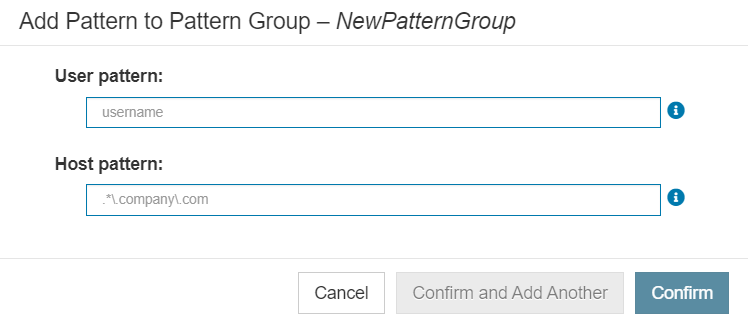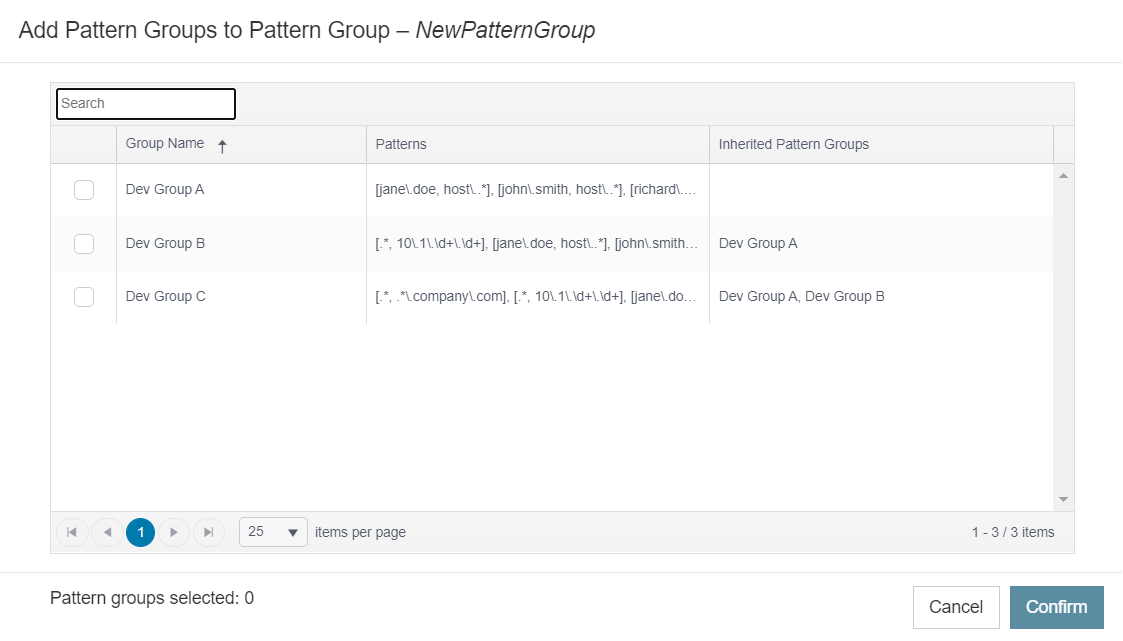In this section:
License Groups simplify the configuration of reservations or filters for a group of users. Instead of making multiple reservations or filters for each user, you can make a single reservation or filter for all users in a group. There are two types of groups:
Pattern groups are collections of regular expressions that are used to identify users, typically by username and host ID or IP address, for the purposes of assigning license tokens. The regular expressions used in your pattern groups can be as specific or general as needed to suit your needs and a pattern group may inherit patterns from other groups in addition to any others created specifically for it.



A pattern is a set of regular expressions, one used to match usernames and the other used to match hostnames or IP addresses. The pattern is applied to a license request and both the username pattern and hostname pattern must match the request for the pattern to be considered a match. When a pattern group is applied to a license filter or license reservation, only one of the patterns needs to match the license request for the license filter or license reservation to be applied to the license request.
Username pattern examples:
Hostname pattern examples:
For more information on pattern matching see the documentation for java.util.regex.Pattern.
Inherited pattern groups are an advanced feature. When inheriting a pattern group, all of the patterns from that group will be used by the new pattern group. This allows for creating hierarchies of pattern groups which can simplify making changes to license filters and license reservations based on organizational requirements. Making changes to a pattern group which is inherited by other pattern groups will automatically cascade to those groups, which means that groups which you intend to have a common set of patterns can be defined and maintained in a single pattern group while applying to other pattern groups that inherit them. While there is no limit to the level of nesting when inheriting pattern groups, other than not allowing circular inheritance, we recommend avoiding deeply nested inheritance hierarchies.
You can leverage groups already defined in the User Administration module, rather than of manually creating user groups as described in Creating and Editing Groups.